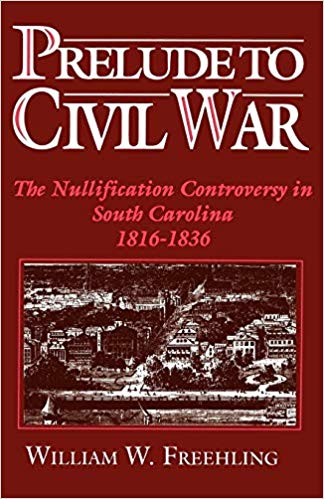What do you think?
Rate this book


Paperback
First published January 1, 1965
In one sense, the campaign against the tariff was the most articulate expression of South Carolina’s slowly awakening desire to end the avoidable aspects of the depression of the 1820s. The nullification crusade came at a moment of transition in South Carolina’s economic history, and the fury of the campaign was in part an intriguing manifestation of the nullifiers’ doubts about whether they could achieve an aggressive, efficient capitalist system…But the deeper economic cause of the nullifiers’ crusade was the indigence which afflicted Carolinians by the thousands. Throughout the state, citizens in danger of losing land, shops, and slaves focused their frustration and anger on the protective tariff…
The ratification of the Constitution was a manifestation of America’s commitment to John Locke’s contractual theory. Locke’s theory, in turn, was an attempt to solve a classic conundrum in political theory: how can a government possess the coercive force necessary to enforce its laws without becoming an illegitimate tyranny? Locke assumed that governmental power became legitimate when the community consented to its exercise. Coercive force could not be considered tyrannical when it was used to enforce the will of the governed.
But as contractual theorists realized, if each citizen had to consent to each law, governments could no longer enforce their edicts. Gaining political legitimacy would require surrendering the power to govern at all.
To escape this difficulty, Lockeans distinguished between an initial, higher, constitution-making stage and a subsequent, more mundane, lawmaking stage. In the initial social contract, members of a community consented to a constitution, thereby establishing a particular form of government and giving it certain powers. When they ratified a constitution, contracting agents also renounced their right to consent to laws passed within the sphere of the power granted. By investing a government with certain prerogatives, the governed avoided the anarchical consequences of requiring everyone to assent to each specific law.